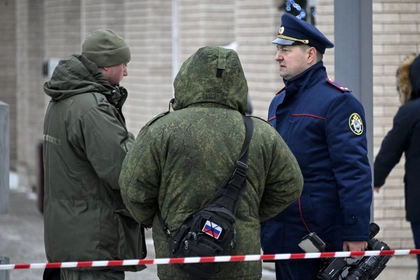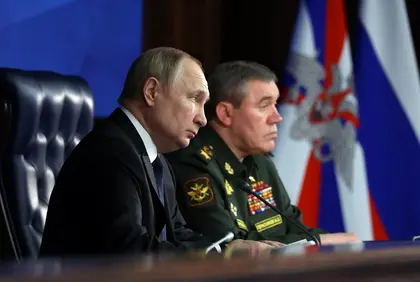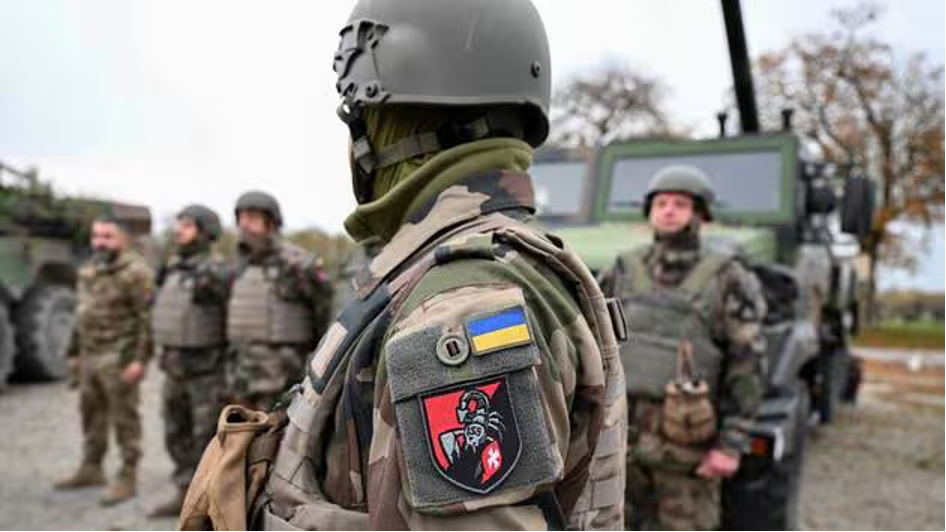The Kremlin has once again replaced its top commander in Ukraine as the “special operation” it believed would end in victory in a matter of days, drags on into its 11th month.
JOIN US ON TELEGRAM
Follow our coverage of the war on the @Kyivpost_official.
Who’s been promoted?
The dubious honor has gone to General Valery Gerasimov, who moves from Chief of the General Staff of the Russian armed forces to Commander of the Joint Grouping of Forces, the Russian defense ministry announced in a statement on the evening of Wednesday Jan. 12.
- Check out the freshest Ukraine news items as of today.
What has he done to deserve this?
It’s less about what General Gerasimov has done and more about what his predecessor hasn’t done.
Sergei Surovikin was only given the top job three months ago and in what must be a very humiliating move, will now become Gerasimov’s deputy. Surovikin will work alongside two other generals, Oleg Salyukov and Alexei Kim, according to the statement.
What has he not done to deserve this?
Well, for starters, he’s not won the war. But he has had a very eventful three months in charge. Unfortunately for him, none of these events were very positive for Russia.
Surovikin, an army veteran with a reputation for ruthlessness that earned him the moniker “General Armageddon” was tasked with turning the tide in Ukraine in October, as the Russian army faced a series of battlefield defeats.

Suspect Detained in Moscow Bomb Attack That Killed Chemical Weapons General
The most notable effect of his promotion was the shift in Russian tactics that accompanied his promotion – two days after his nomination, the Russian army unleashed a wave of drone and missile attacks on Ukrainian infrastructure targets, causing electricity blackouts and water outages in several cities.
But the aim of this campaign – to demoralize the population of Ukraine and raise pressure on Kyiv to negotiate with Moscow, has not been realized.
Adding to Surovikin’s woes, several humiliating battlefield defeats happened on his watch.
Around a month after his appointment, Russia retreated from the southern city of Kherson, the only regional capital it held.
Then over New Year, Ukraine launched a devastating attack on an unprotected compound housing hundreds of newly mobilized Russian troops in the occupied town of Makiivka, a suburb east of Donetsk.
Russian officials acknowledged that at least 89 people were killed, but Ukrainian sources as well as many Russian war correspondents said the death toll was closer to 400.
Even the lower figure would represent the biggest loss of life from a single strike as officially reported by Moscow since the start of the full-scale invasion in February.
OK, so he’s not exactly shone in the role then. What do we know about Gerasimov?
Gerasimov is a hawk and long-time Putin ally who has played a major role in all of Russia’s military campaigns since the Chechen War of 1999.
He was central to the planning of the reinvasion of Ukraine last year and is believed to have been sidelined when this didn’t exactly to go according to plan.
It was reported he had a close brush with death in April after Ukrainian forces discovered his location during a risky visit to the frontlines.
He doesn’t sound so hot either.
True, but when you’re still fighting a war you expected to win in a matter of days and have lost a reported 29 generals and commanders along the way, you have limited options.
Additionally, as the Institute for the Study of War (ISW) notes, there is likely also a political angle at play.
They highlight that Surovikin is a favorite of Wagner founder Yevgeny Prigozhin and the change is “highly likely to have been in part a political decision to reassert the primacy of the Russian MoD in an internal Russian power struggle”.
Former Russian opposition politician, Illya Ponomarev agreed, telling Kyiv Post: "By appointing Gerasimov, Putin is supporting the power block. It is also a slap in the nose to Prigozhin, who criticizes Gerasimov and supports Surovikin."
What is the Kremlin saying about the change?
Russia’s defense ministry gave a bit of a wishy-washy excuse, saying: “The increase in the level of leadership of the special operation is linked to the expansion of the scale of the tasks at hand and the need to organize closer interaction between troops.”
What are pro-Russian commentators saying?
One of Russia’s main Telegram channels in support of the offensive, Rybar, was skeptical about whether the switch could help Moscow’s troops have more to show from the lengthy operation.
“Moving components around doesn’t change the overall sum,” Rybar said on messaging app Telegram, adding, “we want to believe in a miracle in the 11th month of the special operation.”
Rybar said that Surovikin’s results were “controversial” and that any immediate successes – including a potential win in Soledar – would now be credited to “the new-old commander” Gerasimov.
“Only time will tell” if the “unsinkable” Gerasimov will also be demoted if Russia suffers new setbacks, Rybar said.
What’s top of Gerasimov’s to-do list?
Gerasimov will be hoping he can soon declare victory in the fierce battle for the town of Soledar.
Ukrainian military analyst Oleh Zhdanov on Ukrainian TV said that if Russian forces seized Soledar or nearby Bakhmut it would mark a political victory rather than any sort of substantial military win.
“The Russians, if they take one of these towns, will try to put the event on par with capturing Berlin and they will use it for propaganda purposes, as much for the outside market as for domestic consumption,” he said.
“Inside Russia, it will give them the opportunity to lift the spirits of conscripts and society as a whole. To unite them all...”
It’s worth noting that when Gerasimov planned the war, the major victory they envisioned was the capture of Kyiv and the occupation of all of Ukraine.
Eleven months later and in the face of incredible Ukrainian resistance, this has been revised down to the capture of one small town.
You can also highlight the text and press Ctrl + Enter






